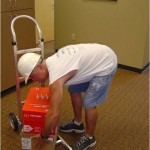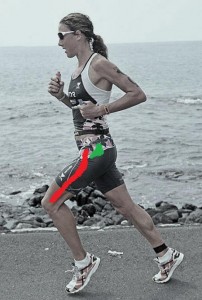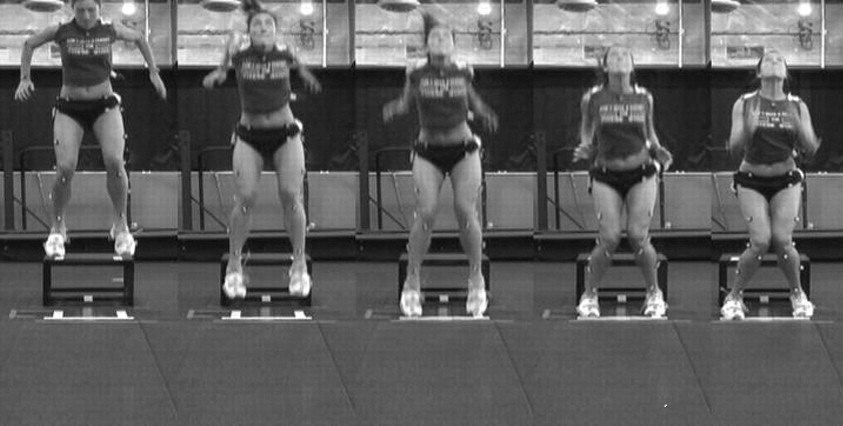
Your knee is the trash can of your lower extremity. It collects all the garbage of poor stability and starts causing pain. It is painful during or after activity because of improper use. While poor movement drives inflammation and pain, proper movement is like massage for our joints.
Too often, I hear people explain that they can’t squat down properly, because they have bad knees. They cannot run like they want to, because they have bad knees. The truth is that even in the presence of advanced knee arthritis, fixing the motion can only improve their situation.
In keeping with the theme of the self audit of this series of blog posts, let’s look at a quick screen that reveals poor knee control and review corrective strategies.
Step 1) stand barefoot on a staircase step (which should be about 7″ tall according to Wikipedia)
Step 2) step forward with one foot, tap your heel the the step below, and return.
Step 3) observe the path of the knee upon which you are standing.Sidenotes: If you cannot keep the feet pointing forward and the heel of the stance foot flat to the step, then read the Ankle Mobility Audit.
If your stance foot keeps rolling in when stepping forward with the opposite, read the Foot Stability Audit.

A knee that turns inward when performing the step down test is either poorly controlled by the hip or by the ankle/foot. At the hip, it may be the product of a weak gluteus medius with or without a tight iliotibial band. Correction should focus on addressing these problems at the hip and, if indicated, the ankle/foot.
Stability of the knee is crucial during walking, running, and landing from a jump. In fact, a lack of strong control from the gluteus medius is a major contributor to non-contact ACL (ligament) injury of the knee. As you can see in the high speed camera images below, this lady cannot control the knees diving in. Inefficiencies like this compromise performance and, ultimately result in injuries.

Here is one example of the many ways one can strengthen the control that the gluteus medius has on the knee. Each individual is different, so is no substitute for a professional evaluation and customized movement correction. Here is one great way to strengthen the strengthen the hip and gain better stability of the knee. Thanks to Mike Reinold for the video.
Enjoy.